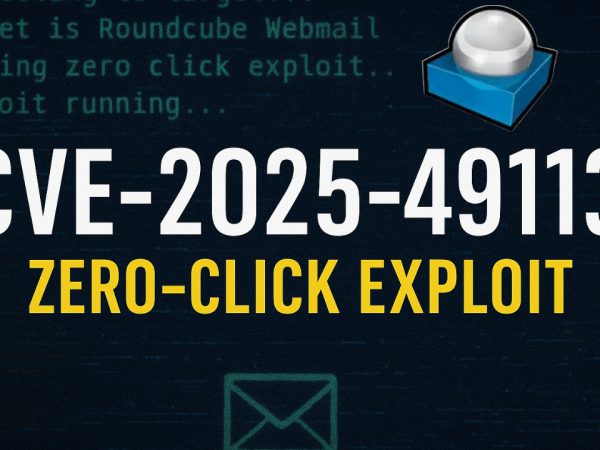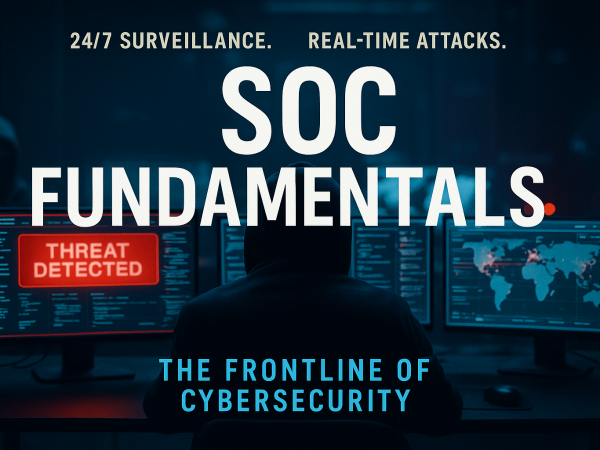Introduction
The Microsoft Cybersecurity Analyst Professional Certificate on Coursera is a comprehensive learning path designed to equip learners with the foundational knowledge and practical skills needed to enter the cybersecurity field. As an initiative between Microsoft and Coursera, this certificate offers valuable training for aspiring cybersecurity professionals, covering tools, techniques, and frameworks vital for protecting digital infrastructure.
Course Overview
The Microsoft Cybersecurity Analyst Professional Certificate is an 8-course series that takes learners through the core aspects of cybersecurity. It is designed for beginners, meaning no prior experience is required, making it accessible to a wide range of learners.
Key topics include:
- Security Fundamentals: Concepts like CIA (Confidentiality, Integrity, Availability) triad, network security, and threat models.
- Threat Detection & Response: Incident response, threat intelligence, and mitigation strategies.
- Network Security: Techniques for securing computer networks, encryption methods, and managing firewalls.
- Cyber Defense & Monitoring: Using security information and event management (SIEM) tools to monitor for and defend against cyber threats.
- Vulnerability Management: How to identify, assess, and remediate vulnerabilities within an organization.
The certificate is part of Coursera’s Professional Certificate Series, which aims to prepare learners for real-world job roles, specifically that of a cybersecurity analyst. Additionally, learners gain hands-on experience with Microsoft’s security tools, including Azure Security Center and Microsoft Sentinel.
The Microsoft Cybersecurity Analyst Course Content
- Microsoft SC-900 Exam Preparation and Practice
- Advanced Cybersecurity Concepts and Capstone Project
- Introduction to Networking and Cloud Computing
- Cybersecurity Threat Vectors and Mitigation
- Cybersecurity Tools and Technologies
- Introduction to Computers and Operating Systems and Security
- Cybersecurity Solutions and Microsoft Defender
- Cybersecurity Management and Compliance
- Cybersecurity Identity and Access Solutions using Azure AD
Link to the official exam page can be found here.
Link to the official coursera page can be found here.
What you will learn by taking and enrolling in Microsoft Cybersecurity Analyst professional certificate:
Upon completing the Microsoft Cybersecurity Analyst Professional Certificate, learners will:
- Understand basic cybersecurity concepts, including the CIA triad, risk management, and threat models.
- Gain familiarity with various cybersecurity tools, especially within the Microsoft ecosystem.
- Develop the ability to detect, analyze, and respond to cyber threats in real time using Microsoft Sentinel and Azure Security Center.
- Understand how to secure networks and protect against common vulnerabilities.
- Be prepared for entry-level roles as a cybersecurity analyst, SOC analyst, or other related positions.
- Demonstrate your new skills with a capstone project and prepare for the industry-recognized Microsoft SC-900 Certification exam.
Does the professional certificate include peer-graded assignments?
No, in order to pass and complete the course in coursera you only need to pass the graded assessments at the end of each module.
Is the Microsoft Cybersecurity analyst professional certificate from coursera enough to prepare and pass the SC-900 Exam?
Yes if you are coming from an IT or security background and have some level of experience in cloud computing but if you have not enrolled in any cybersecurity course before then you may need to supplement your studies by reading study guides and practicsing Microsoft Azure.
What are some of the recommended study materials beside the course on coursera?
Beside the course and the official material from Microsoft, I recommend getting the Microsoft Cyber Security Analyst SC-900 Study Guide & Notes which has the below table of contents:
-About The Exam
-Topics Covered In The Exam
-Introduction to Computers and Operating
Systems and Security
- Maintenance
- Data warehousing and data lakes
- Practice Test
-Introduction to Networking and Cloud
computing
- OSI Model and TCP/IP
- DNS
- Logging
- Client-server working models
- Dynamic Host Configuration Protocol
- (DHCP)
- Authorization and Authentication
- Wi-Fi and Network Attacks
- Firewalls
- Virtualization and Cloud Computing
- Artificial intelligence
- Practice Test
-Cybersecurity Threat Vectors and Mitigation
- Example Cyber Attacks
- Social Engineering
- Mitigation Strategies and Security Controls
- IoT Security
- Cybersecurity Regulatory Frameworks and
- Standards
- Practice Test
-Cybersecurity Identity and Access Solutions
using Azure AD
- Identity Management in Azure AD
- Practice Test
-Cybersecurity Solutions and Microsoft Defender
DDOS Protection in Azure
- Creating a Virtual Machine in Azure
- Azure Firewall Protection
- Encryption in Azure
- Azure Bastion
- Azure Policy Definitions and Management
- Groups
- Microsoft Sentinel
- Microsoft 365 Defender
- Using Sentinel and Defender for log
- analytics
- Deploying Microsoft Defender for Identity
- Protection
- Summary: Azure AD Identity Protection
- Practice Quiz
-Cybersecurity Tools and Technologies
- Red Team vs Blue Team
- Phases of Penetration Testing
- Penetration Testing Tools
- Understanding IDS
- Incident Response
- Azure Private Endpoints
- Network Segmentation in Azure
- Azure VPN
- Vulnerability Management in Azure
- Tools used in Cybersecurity
- Practice Quiz
-Cybersecurity Management and Compliance
- Disaster Recovery and Backup Strategies in
- Azure
- Azure Log Analysis
- Retention and Archiving in Azure
- Azure’s Cloud Adoption Framework
- Business Continuity Planning
- Microsoft Purview
- ISO27001
- ISO/IEC 27017
- Azure Blueprints
- Practice Quiz
-Advanced Cybersecurity Concepts
- STRIDE threat categories and mitigation
- Spoofing threat
- Tampering threat
- Repudiation threat
- Information Disclosure threat:
- Denial-of-service threat:
- Elevation of Privilege threat:
- Code Reviews
- Vulnerability identification
- Security best practices
- Countermeasure implementation
- Mentoring and training
- Threat Modeling
- PASTA Framework
- Microsoft Threat Modeling Tool
- Security Development Lifecycle (SDL)
- Risk Assessment Steps
- IoT Device Architecture
- Security Monitoring Tools in Azure
- Zero Trust Model
- Identity as Service
- Azure Hybrid identity authentication
- methods
- Azure Network Security Groups
- Practice Quiz
- SC-900 Mock exam
The study guide is 489 pages and is offered in both PDF and markup.
Microsoft Cyber Security Analyst SC-900 Study Guide & Notes
Is the Microsoft Cybersecurity Analyst Professional Certificate on Coursera worth it?
Yes, the Microsoft Cybersecurity Analyst Professional Certificate on Coursera is worth it and for the below reasons:
It is a valued qualification
Offering cybersecurity goods and services, Microsoft is a top provider of the certificate. Additionally, Microsoft is a part of the National Cybersecurity Alliance (NCA), a nonprofit that aims to advance cybersecurity education and awareness. This indicates that employers in the cybersecurity sector respect and acknowledge the certificate.
It addresses several different cybersecurity-related themes
Security basics, threat intelligence, security operations, and security management are some of the subjects covered in the certificate program. This equips you with a solid foundation in cybersecurity and gets you ready for a range of cybersecurity entry-level jobs. Employers are particularly interested in areas like cloud security and identity and access management, which are covered in the curriculum.
It’s reasonably priced
Comparing the cost of the certificate program to other cybersecurity certificates, it is very affordable at $294. Because of this, it’s an excellent choice for those on a tight budget or want to advance their careers without going over budget.
It is adaptable
Being self-paced, the certificate program allows you to learn whenever it’s convenient for you. For working individuals who wish to gain new cybersecurity skills without having to quit their employment, this makes it a wonderful option. In order to tailor the program to your needs, you can also decide which courses to study in what order.
It is modern
To take into account the most recent developments in cybersecurity, the certificate program is updated on a regular basis. This implies that you will acquire the most recent knowledge and abilities.
Comparison with Other Cybersecurity Certificates
When comparing the Microsoft Cybersecurity Analyst Professional Certificate with other certifications, here are a few distinctions:
- CompTIA Security+: Security+ offers broader coverage of cybersecurity concepts and is a widely recognized entry-level certification. However, it doesn’t provide the same hands-on experience with specific tools like Microsoft Sentinel.
- Google Cybersecurity Professional Certificate: Google’s counterpart focuses more on Google Cloud services and general cybersecurity concepts, making it more versatile in a multi-cloud environment. However, learners looking to work in a Microsoft-heavy workplace may find the Microsoft certificate more relevant.
- Certified Information Systems Security Professional (CISSP): CISSP is an advanced certification meant for professionals with at least five years of experience, whereas the Microsoft Cybersecurity Analyst Certificate is beginner-friendly and designed for entry-level roles.




